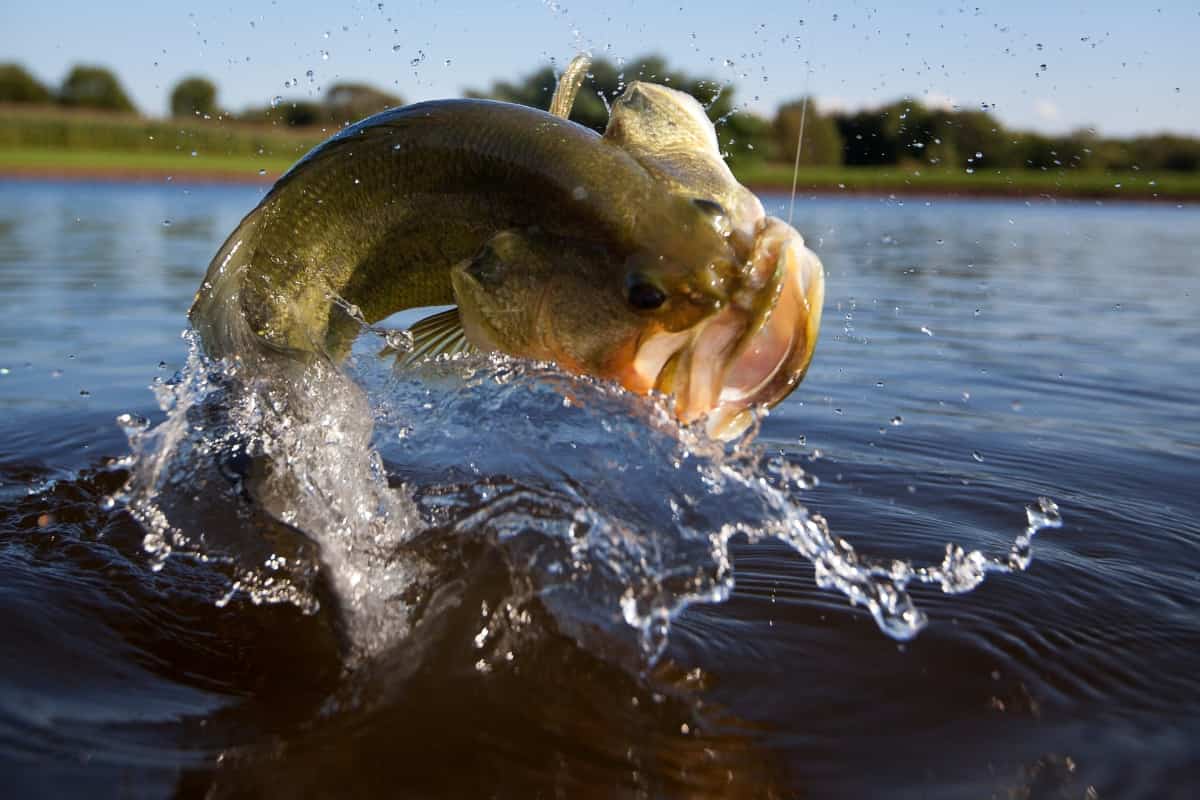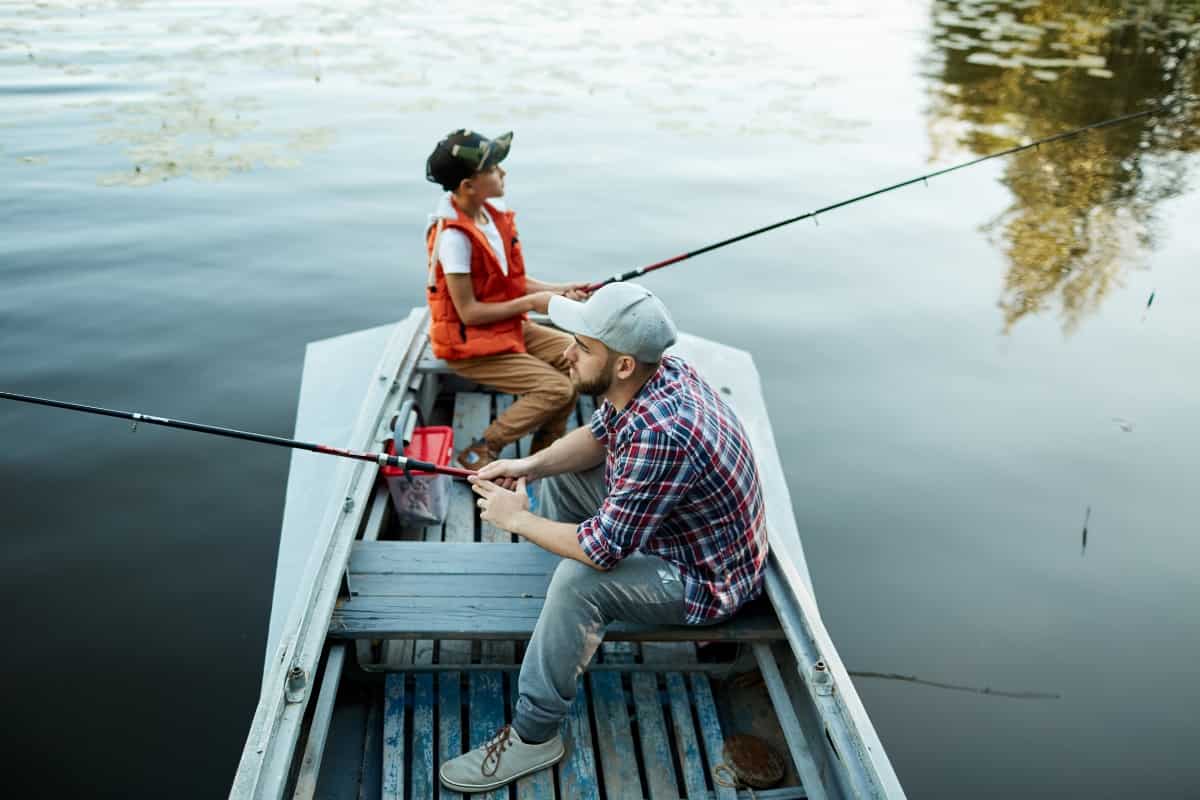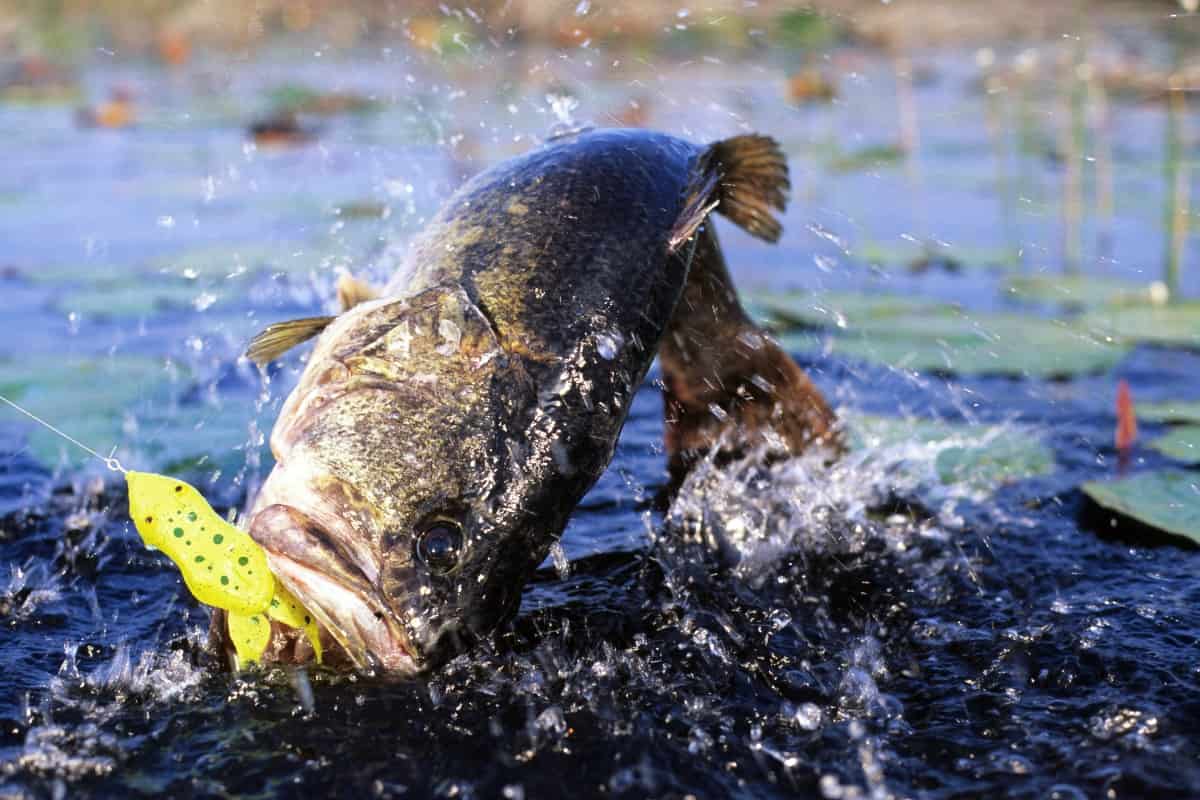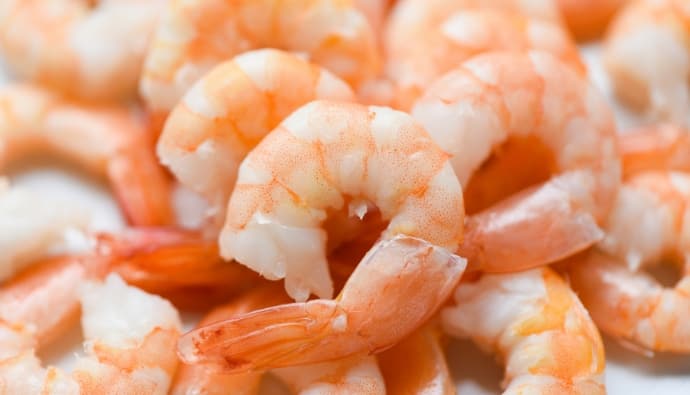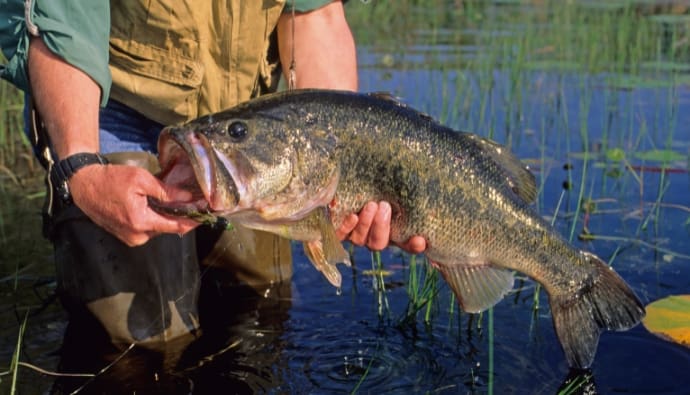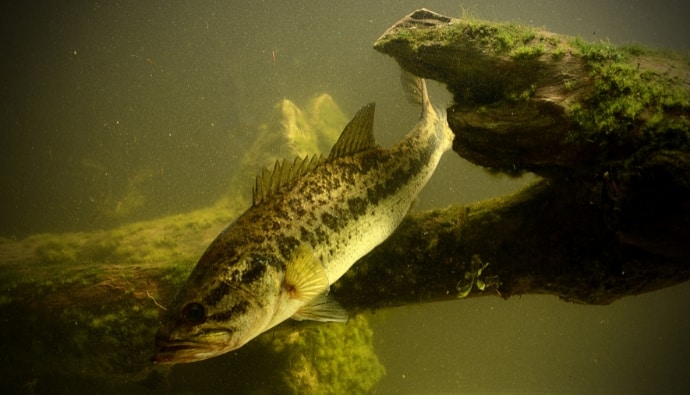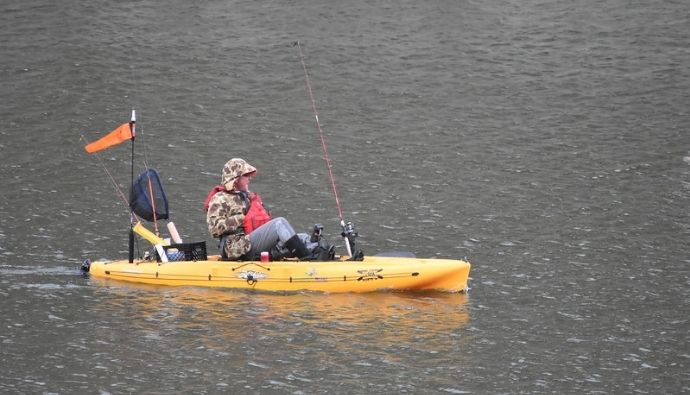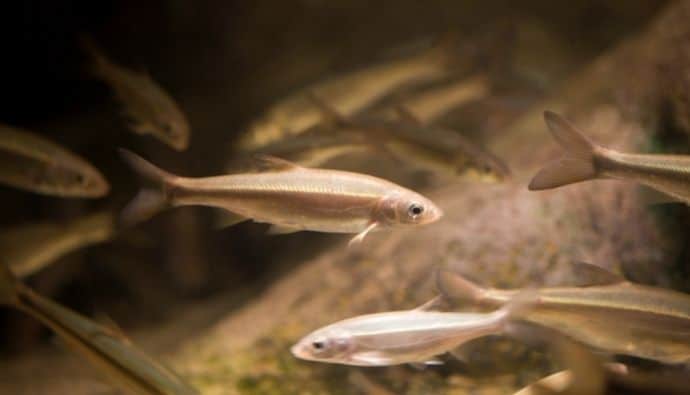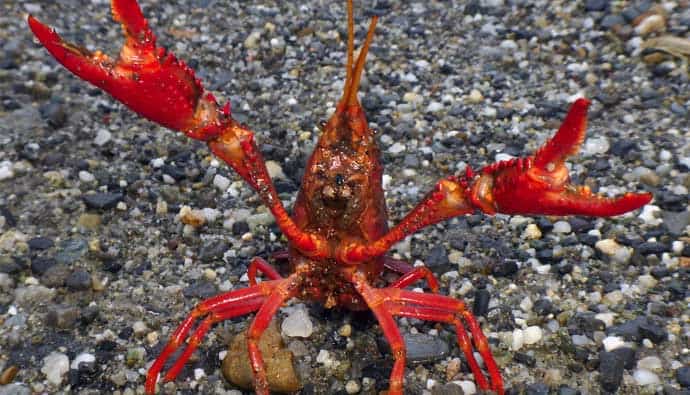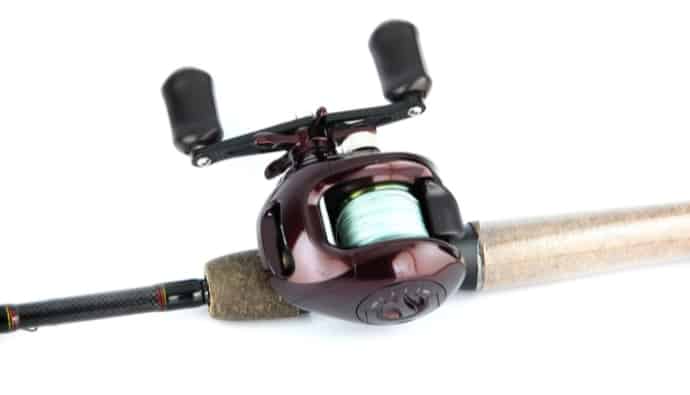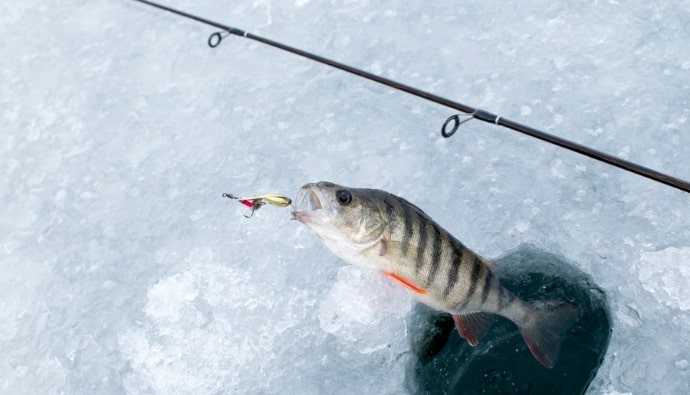If you’re looking for a fun way to spend some time with your friends and family, winter bass fishing is the answer.
Winter bass fishing is one of the best ways to spend an afternoon in the middle of January. You can go ice fishing on frozen lakes or ponds or try ice fishing from shore.
You can also catch fish through holes cut into thick ice at home or at a local lake.
Whether you do it as a hobby, to get outdoors during cold weather months when there aren’t many other options, or just want something fun and different to do this winter – we have everything you need!
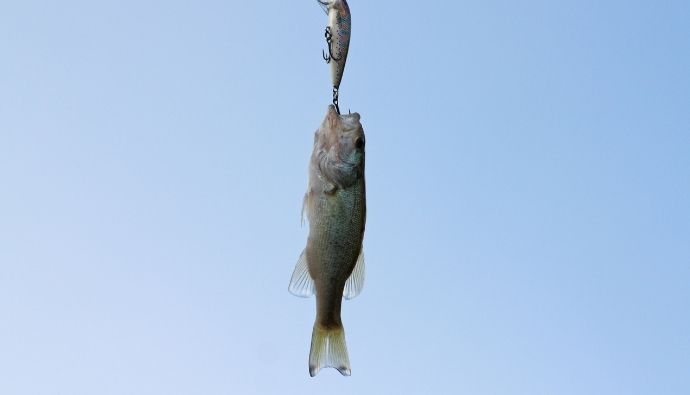
What You’ll Need for Winter Bass Fishing
Before anything else, these are the essentials that will keep you going for wintertime bass fishing.
- Boots, waders, and gloves for your gear
- Heating equipment/source to keep you warm
- 4A spinning or casting rod, depending on your choice
- Slow-moving fishing lures that may include spoons, blade baits, and jigs
- Ice fishing gear that’ll keep you safe against snow and ice before the water freezes over
When to Catch Bass During Winter
Many anglers think that the best time for fishing during the winter season is in the afternoon. The time from 2 PM until sunset is the most appropriate time to go fishing.
This is because sunlight makes the warmest water, and the bass and baitfish are the most active.
Although, afternoons aren’t your sole option. Daylight is also one of the finest times to catch bass, especially smallmouth bass.
You’ll almost certainly receive some bites if you’re out from an hour or two before daybreak until the sun rises.
Where To Find and Catch Bass During Winter
The most important fishing tip is to go where the fish are. It’s crucial to understand where the bass likes to spend the winter.
Bass prefers the cover of any kind, whether grass, timber, or docks, but rock fixtures and formations in the water give excellent natural cover.
Near the River Shores
Bass fish tend to migrate along the river banks as the water temperature is warmer and there is shallower water. Baitfish and other structures attractive to bass make this a pleasant feeding spot and resting ground for them.
Shore angling will become more convenient than angling from a boat. It’s because it can lessen the hassle of keeping your boat steady, especially when there are stronger winds, currents, and waves.
This can also let you directly land on the bass, aimlessly wandering around the banks, making them an easier catch without exerting much effort.
When angling around bank areas with warmer water temperatures, you can choose drop shot rigs.
Lake’s Deepest Part
Whether in rivers, ponds, or lakes, when there is a sudden change in weather, lots of basses will head to the maximum depths of water, especially during the winter months.
Bass fish prefer settling in deeper water because they can spot bottom-feeding food sources, which will be an easy meal during its idle state.
Most of them will spend lots of time here in large crowds, as they also group themselves during cold weather.
Bringing fishfinders and water temperature gauges can be useful during angling on lakes during winter. Professionals say that these are the best times of the year for deep bass angling.
Keep in mind that the bass’s preferred water temperature ranges from lower than 50 degrees, so you should stay on location within 30 feet range at most.
Best Fish Lures and Baits to Use
One of the good things about winter bass angling is that there are ice fishing baits proven to be more effective during these months.
Let go of the usual topwater and fast-swimming lures, as they are just a waste of resources. Here are some of the best lures you can use that will perform well.
Jerkbaits
This bait can be a great choice for anglers, although it may come with some caution. They can only be used when the cold water clarity is clear, or the bass fish might not see them.
Professionals advise using them when angling around areas with deep water.
Football Head Jigs
These jigs are designed to resemble crawfish. You should choose a color that looks the nearest to the crawfish color in your angling spot.
It is said that the best picks are usually brown and green. This will give a better chance for the fish to drag the lure slowly toward the bottom body of the cold water.
Metal Bait
Fish baits like blades and spoons can have a good hold even in cold weather in water. In addition, these are easy to access, convenient to use, and can resemble the movements of a dying or wounded baitfish very well.
Winter Bass Fishing Secrets
Before heading out to go winter bass fishing, it’s vital to come up with sensible expectations so you can take note of how well you are doing and prevent yourself from being discouraged easily.
Keep in mind that bass fish activity and bite are not the same during different seasons.
When it’s a lucky day, ten bites is a good achievement, although the perfect day can reach as many bites as 15. The advantage of angling during winter is that the average bass size is greater than in any other season.
They spend the rest of the year feeding and growing big, so you can feast on them when winter comes.
Patience is the Key
As everyone knows that cold water bass fishing during the cold months is not easy compared to other times of the year, it’s not impossible, although it may take longer than you expected.
It will be most rewarding compared to angling in other seasons. So take some time, relax, and freshen your mind before going out lake fishing.
When you’re finally on your boat, the “jerk, jerk, and pause” mantra is a helpful method that requires a great amount of patience.
Once you’ve made a few tries, let your lures and bait take some rest every once in a while for 15 seconds at most.
Winter Bass Fishing Tips and Guide
When fishing for bass in the winter, there are a few extra precautions that you should take to ensure success.
It’s important to have arm strength and patience, for starters, because your catches will be much slower with this type of water temperature! Here we offer some tips on how best to handle these conditions:
1. Make sure to use the most appropriate bait and downsize
For winter bass fishing, lures are pretty much popular for most. Ensure to pick out the right lure for the season. Winter fishing is not impossible; just a little bit complicated.
It might need a little bit of preparation. Noisy and fast-moving lures won’t work, especially at low water temperatures.
Make sure to go for a natural approach; lure slowly and try to copy the fish’s color as much as possible in the water you’re fishing.
As previously mentioned, you can use a jig, a spoon, and a blade bait. These are considered slow-moving lures and are also bottom feeders.
Worms and small baitfish are also recommended. You might not want to consider any fast-moving ones like suspending jerk baits, crankbaits, etc.
Since it’s cold and winter, you may want to downsize your bait a bit. That makes sense since bass will not likely fight over a large prey.
2. Go for slow-moving baits
You will probably need to perceive and think like a fish in bass fishing. Aside from picking the correct lure, it’s best to mirror the bass’ winter movement patterns. That helps in keeping your bait’s movement steady, slow, and sluggish.
Bass tends to eat an easy meal and never chase fast-moving bait. And it will be easier to retrieve them since they won’t have to fight it that much. Make sure to keep it easy and steady at the bottom part of the water.
3. Know where to look for it and stick to the bottom of the water
Adding 10-20 feet of water to where you normally do your winter bass fishing is advisable. That equates to lurking in deeper water when you’re fishing.
Bass prefers frigid temperatures, so they can even stay in underwater structures. You may also want to consider the water clarity. Clearer water makes the bass come closer to the shore, while a murky one makes it run deeper.
Many basses tend to stay as a group, particularly when it’s cold. They also look for food dwelling at the deepest part of the water.
A big bass angler would probably recommend the colder, the better. So, make sure to grab that opportunity and add some depth to your target location.
4. Do not forget about the shore and baitfish
Aside from water clarity, some of the best strategies in bass fishing rely on two main points. Those two are baitfish and shorelines. You might want to have a clearer understanding of these two.
Coldwater bass typically hangs around baitfish, so if your goal is catching them, there’s a good chance they will bite on anything that looks completely appetizing or smells like food.
To fish from the shore is a good idea. Some recommend this, for it’s probably easier to get a passive bass.
5. You need to understand the water temperature
To fish in less than 40 degrees of water
At this rate, more bass is inactive. Bass also preserves energy by taking small, simple meals as their metabolism slows.
You need to smartly throw something right in front of them to make the most of this time. Make sure to have it at a slower pace, just enough for them to take the bait.
To fish at 40 to 50 degrees in water
Patience is key when doing cold water fishing at this specific rate. They can be a little slower at times like this, but you will want to use them as a lure during these feeding periods and present your line slowly with care to get them.
6. Wearing the right gear in bass fishing during cold weather
Finding bass in the winter can be dangerous because of cold, risky waters. Ensure you have enough layers and gear to stay warm.
Additionally, you might want to prioritize your safety first before anything else. Other than safety gear, make sure to communicate your whereabouts as you fish for some winter bass.
Winter Bass Fishing is a Good Opportunity
Whether you are a professional or starting angler, you know how difficult it is to settle in one place on your boat during the winter months knowing there are thousands of catches waiting for you.
If you would just take the chance and seize your day at the lake.
Now that this article has provided you with expert tips and information on how to get your bass fishing right, why not take a chance and hurry to secure your first fish?
Remember that patience is the key to making everything go smoothly, and always choose the right bait, time, and places to land on the best bass!




 Facebook
Facebook YouTube
YouTube